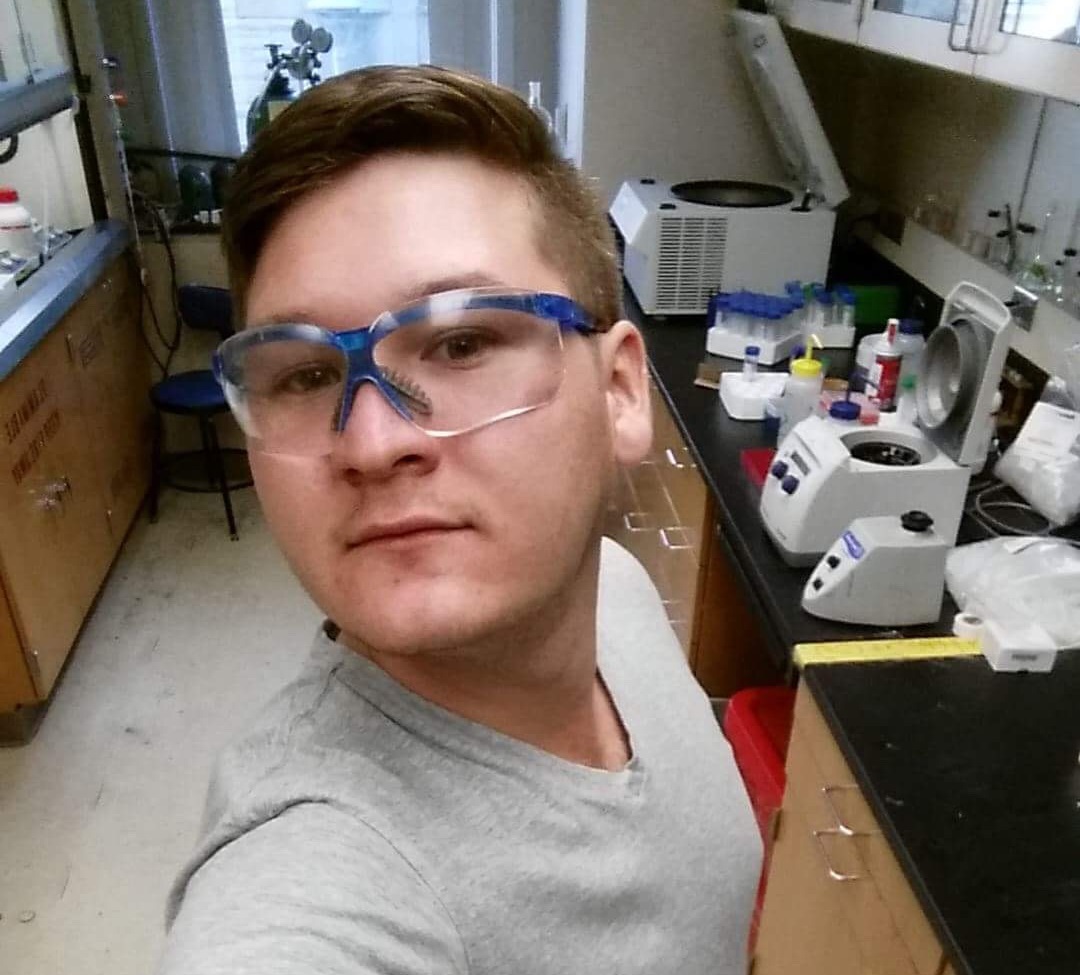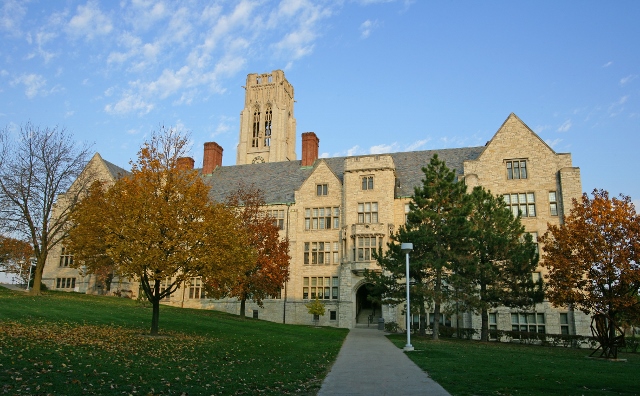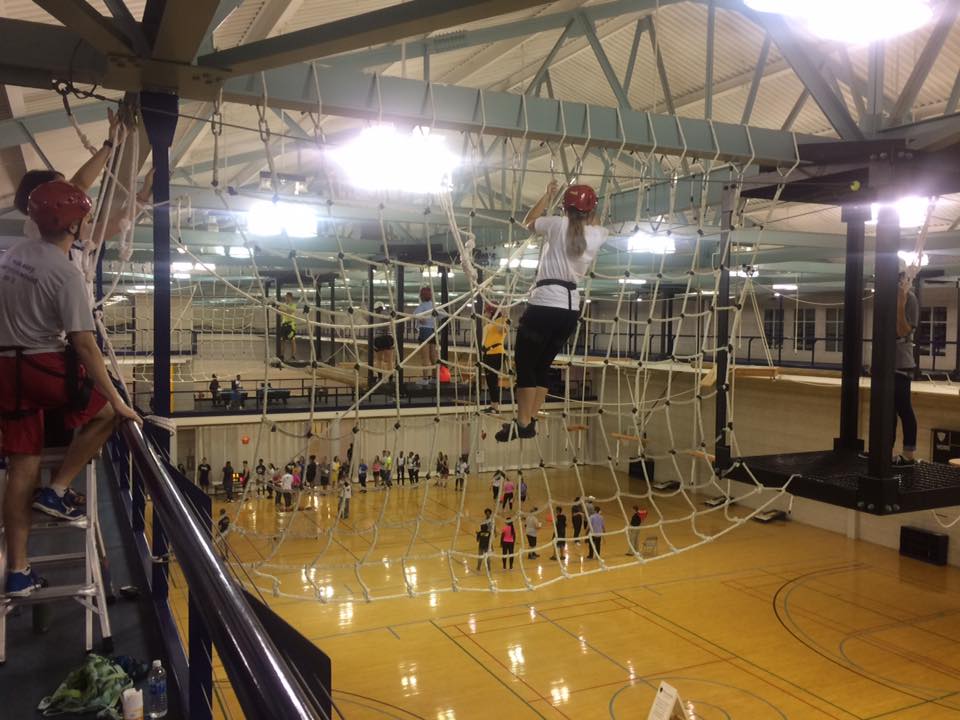{{phone.Value}}
successful admissions
of students enter the university of their choice
students consult Education Index when applying for universites
successful admissions
of students enter the university of their choice
students consult Education Index when applying for universites
EI: Hello! Please tell us a little about yourself and how you entered the University of Toledo?
Hi all! My name is Aydar and I recently graduated from the University of Toledo with a degree of Ph.D. in chemistry. I'm originally from Tatarstan, city of Naberezhnye Chelny. He finished school in his native city with a gold medal and enrolled in 2007 at the chemistry Department of Moscow state University. University. In 2012, the Department of analytical chemistry defended a thesis dedicated to the new method of determination of antibiotics using gold nanoparticles with high sensitivity. During the last school year, I passed the TOEFL and GRE exams and have applied to four universities in USA for admission to graduate studies for the program Ph.D. (University of Florida, Purdue University, University of Toledo, University of North Dakota). The universities I chose based on the availability of laboratories that interesting to me to research, scholarship, and presence of friends/acquaintances. I was accepted to the University of Toledo and University of North Dakota, and I decided to stop the choice on the ground of them. Selected on the basis of geographical situation and climate. In Toledo I moved in early August 2012, approximately twenty days before the beginning of the fall semester.

EI: Why did You decide to continue your training in the USA?
First, I wanted to continue learning the language well enough owned at the time of admission. Moreover, it chose a English speaking country to have the opportunity to experience and feel the culture and make new friends. Since the United States is a country of migrants, visitors are treated warmly and openly, and very often with sincere curiosity. Secondly, the American quality of higher education and scientific research - one of the best in the world. The United States is funding about a third of the world's science budget, while the share of Russia, for example, is not more than 2%. Thirdly, after graduation have the opportunity of obtaining a work permit for three years (for natural scientific professionals), and later a residence permit.
>> View all programs University of Toledo
EI: was it Difficult to adapt in the US? What difficulties have You faced?
I was in USA twice before moving to study in graduate school, so adapting was quite easy. The first time I visited upstate new York for Work&Travel, for the second year summer internship at the University of North Dakota, where he engaged in laboratory research. Therefore, at the time of admission to graduate school I was fluent in English and able to focus on the classroom and science.
About a month before coming to the US one, which was in Toledo, but soon left, added me in Facebook in the group of Russian-speaking students Toledo. New friends warmly accepted and promised to help adapt on arrival. In the end, I was greeted, helped find and rent an apartment, to go to buy everything you need to get a driver's license. Public transport in Toledo, as in General in the USA, is not very well developed, so before you purchase your own car is good to have friends who can drive, shop, etc. on the other hand, in the US prices for used cars starting from $700 and very easy to get a driver's license. After two or three months after my arrival, I bought a car, and transportation ceased to be a problem.
I think the only difficulty was to adapt to the new schedule of study, to enter into the educational process. Graduate students first year of study to receive the scholarship are required to teach laboratory courses. This is about 15-25 hours of load per week, including verification of reports and assessments. Even to this must be added the three items for which there are homework and exams, and mandatory attendance of lectures by guest professors. With second semester officially (unofficially, since the end of the first semester) starts research work in a laboratory, but the number of items is reduced to 1-2, and therefore the load is about the same. If the academic supervisor to have access to big grants, it could Fund the scholarship with a grant, and then the necessity of teaching no longer, have more free time and opportunities to focus on science.
EI: Tell us a little about the University: what I like, teaching staff, students, student organization, campus, etc.
The University is quite large, consists of three campuses: main, health, and energy innovation. All his training time is spent on the main campus. Teachers vary greatly in teaching style, accent, quantity of homework and other parameters. Graduate students are free to choose items (for all the training you need to study at least eight), and therefore in the classroom is rarely boring. Either the subject interesting, no matter what the teacher or lecturer is very talented, and no matter what the subject, or all at once. The best strategy when choosing items is to ask the opinion of senior colleagues who took this course. Each teacher has office hours when students can come with any question, usually it's 2-4 hours a week. In General, they are always ready to help with homework, projects, or exam preparation. Some of the teachers are a strong focus, and nothing can be done, just have to train your ear.
As for research, for graduate students of natural-scientific areas critically important to have access to modern equipment and be able to work on it. In many European universities, for example, to expensive scientific instruments attached technical workers, who perform the measurement, and graduate students do not always have the opportunity to work on them with their hands. Here, at the faculty of chemistry at UT, is a Center of scientific instruments, which occupies the entire lower floor of the building. Graduate students after completing several training sessions have the opportunity to work on expensive modern devices completely independently at any time of the day. During working hours the help of curators-specialists.
The campus hosts many open guest lectures on different topics from leading scientists, entrepreneurs and inventors. Of the most memorable lectures of Steve Wozniak (Apple cofounder) and Ehjjiti Negishi (Nobel laureate in chemistry, 2010).Also hosts many different themed events, celebrated various ethnic holidays, such as the Indian festival of Diwali.
On campus there is a large sports centre, the entrance is free for students. In the centre there is a swimming pool, sauna, fitness room, playgrounds for football, basketball, volleyball and badminton, and even have classes on rock climbing. A great place to relax after a long day in the lab. The campus is the library which has access to a large number of books and magazines, there are rooms for group classes, there's a whole floor where it is quiet and you can focus on writing reports and articles.


EI: Tell us a little about life in Ohio and about the city of Toledo? What are your impressions?Who, in Your opinion, suitable life in this state?
Ohio in General is not very remarkable state. Many foreigners can't show it on the map in contrast to, for example, from new York, Florida or California. Toledo is the fourth most populous city in the state after Columbus, Cincinnati and Cleveland. All four large cities belong to the "Rust belt" of the United States. This city in which was concentrated the heavy industry, which fell into disrepair in the second half of the XX century after its migration to Asia. Now these cities recover and develop with others, as a rule more high-tech industries.
Toledo is characterized by its geographical position: it is possible to get out for a weekend in the big city, but on weekdays not to suffer due to traffic jams. The University can ride the bike (and body in shape, and save time and money on Parking), the more the city administration has devoted great attention to the development of Cycling infrastructure. The cost of living here is low, there is a small downtown in the past five years, many new entertainment options. The climate here is temperate enough for long hot summer combined with a short and not very cold in winter. People in General are open and friendly.
EI: What do You do in free from study and work time, which, we think, You have not much? Whether you are travelling for SSHAs well?
Free time is not much, but enough for sports and Hobbies. I play football, Golf and go on Cycling, and even doing photography and electronic music and collect vinyl records. I travel a bit, but managed to travel the East part and middle West (new York, Chicago, Pittsburgh). At least once a month out in Detroit or in Ann arbor (both an hour away) to have fun with friends, take a walk, go clubbing. In Northern Michigan (3-4 hours drive further) the beautiful nature, almost every year we go with friends to camping Hiking or to the lake house.
EI: the Most memorable for a life time in the US ?
A couple of years ago on my birthday my friends and I went to Northern Michigan (Otsego lake) to relax in the house on the lake. We went on the boat, and attached to it an inflatable donut. The night went kayaking and studied the starry sky. The next day, threw the bikes in the van and went to Traverse city to participate in the Traverse City Ale Trail. To pass it you need to visit nine Breweries and one distillery, and each institution to put a stamp in the passport of the participant. We visited all these places on bicycles in one day.
EI: What advice would You give to students who plan to study in USA?
First and foremost, work on English, especially pronunciation. People are much nicer to talk to someone with smooth speech, with fluency in English. Do not turn in a circle of Russian-speaking people, try to communicate more with native speakers. So you not only improve your English but also to experience the culture of Americans who make life here more fully, and of course make lots of interesting and useful acquaintances. Of course on arrival with compatriots is much easier to establish contact, and many people from the "Diaspora" will be ready to help settle. Second, those who choose between different universities, I would advise you to weigh all the factors. Namely tuition, availability of scholarships, climate, lifestyle, etc. Usually can't have everything at once. For example, if you live in a big city in California, and even get a high enough scholarship, it is still about buying cars and spacious rental housing most likely will have to forget, because the cost of living is incredibly high. The Midwest (Midwest) impresses a relatively low cost of living, good location and more progressive population compared to the southern States.